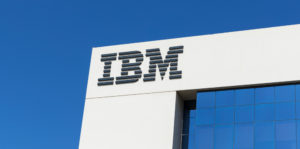IBM and experts from Cleveland Clinic, a worldwide health system, are collaborating to investigate artificial intelligence-based approaches for discovering novel targets for immunotherapy. The publication is the result of the two organizations’ collaboration, Discovery Accelerator, which strives to progress life sciences and healthcare research.
The advancements take the shape of supervised and unsupervised artificial intelligence (AI) that reveals the chemical properties of peptide antigens, which are short segments of protein molecules that immune cells utilize to identify threats.
Timothy Chan, M.D., Ph.D., chair of Cleveland Clinic’s Center for Immunotherapy and Precision Immuno-Oncology and Sheikha Fatima Bint Mubarak Endowed Chair in Immunotherapy and Precision Immuno-Oncology, states, “In the past, all our data on cancer antigen targets came from trial and error.”
“Our collaboration with IBM enables us to advance the fields of artificial intelligence and health sciences research, revolutionizing the process of creating and assessing cancer therapy targets.”
Cleveland Clinic, a nonprofit multispecialty academic medical center, was established in 1921 with the goal of delivering exceptional patient care through the values of creativity, collaboration, and compassion. The organization combines teaching and research with clinical and medical treatment.
Knowledgeable analysis of AI in healthcare
In the Center for Immunotherapy and Precision Immuno-Oncology at Cleveland Clinic, Alban is a computational biologist who oversees a group of data scientists who analyze clinical trial immunogenomics to better understand the mechanisms underlying immunotherapy resistance. In the Cleveland Clinic IBM Discovery Accelerator partnership, he also serves as a team lead for several projects where teams are concentrating on the application of quantum machine learning to immunotherapy.
He completed his PhD in the Cleveland Clinic’s Molecular Medicine department before beginning this study, where he served as a Post-Doctoral Fellow.
Regarding the effects of AI on healthcare, Dr. Alban spoke with Healthcare Digital.
What implications does this discovery have for the immunotherapy field?
Checkpoint inhibitors, CAR-T cells, and cancer vaccines all depend on the immunological synapse’s ability to successfully recognize neoantigens. But the sequence-based models that underpin our current knowledge of these interactions are overly simplistic. This work shows that properties of immunogenic peptides that were previously unknown can be discovered by employing molecular dynamic simulations of neoantigen recognition. Making advantage of these characteristics could aid in the creation of cancer vaccines in the future and advance our knowledge of immunotherapy resistance.
How can tech businesses collaborate with healthcare organizations to address urgent healthcare issues?
Cleveland Clinic and IBM, with their ten-year relationship and the creation of the Discovery Accelerator, are models of how technology and healthcare may collaborate. These kinds of investments and collaborations can significantly accelerate the rate of discovery and remove any communication obstacles that arise when academia scientists attempt to venture outside and collaborate with tech corporations such as IBM.
What other healthcare-related prospects does this technology offer?
This project’s computational approach might be applied to different HLA alleles. This study concentrated on a single HLA allele (HLA-A2) due to computational constraints and the field’s available data, however there are thousands of alleles that may have different binding and neoantigen presentation properties.








